Foreign companies are holding back approximately US $35 billion in investment in Mexico due to uncertainty related to the federal government’s judicial reform proposal and the upcoming United States election, according to The Wall Street Journal.
The figure comes from company representatives and advisers cited by the Journal in a report published Sunday under the headline “Why Mexico’s looming judiciary overhaul spooks U.S. business.”
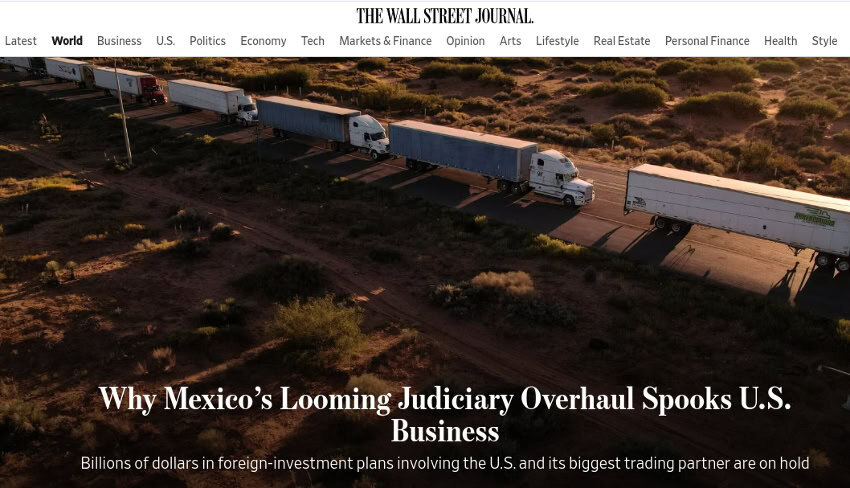
Approved by the lower house of Congress last week, the proposed judicial reform seeks to allow citizens to directly elect thousands of judges, including Supreme Court justices and other federal judges.
Senators could vote on the reform as soon as today, and it appears quite likely that the ruling Morena party and its allies will have the numbers to reach the two-thirds majority required to approve constitutional bills such as this one.
The Journal reported that “American companies are delaying investment plans in Mexico as they review how a shake-up of the country’s judicial system would affect doing business with the U.S.’s largest trading partner.”
The newspaper said that the proposed overhaul of the judiciary “has worried foreign investors who fear judges will become beholden to constituents or political considerations instead of the law.”
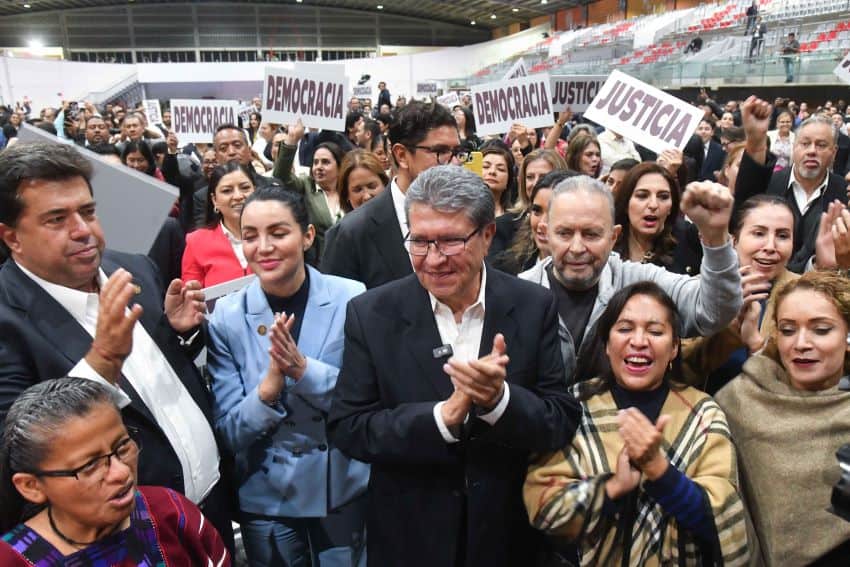
The stalled foreign investment amounting to some $35 billion is for projects in sectors ranging from information technology and car manufacturing to natural-gas pipelines and industrial infrastructure, the Journal said.
That amount — almost equivalent to total foreign direct investment in Mexico last year — apparently includes some $10 billion earmarked for a Telsa “gigafactory” in Nuevo León.
Tesla CEO Elon Musk said in July that the project was “paused,” not because of uncertainty related to the judicial reform proposal, but due to uncertainty over the U.S. presidential election and the possibility that Donald Trump will impose tariffs on vehicles made in Mexico if he wins on Nov. 5.
Tesla’s position on the judicial reform is unclear, but former U.S. ambassador to Mexico Earl Anthony Wayne told the Journal that American executives have disclosed to him that they are pausing investments in Mexico while they wait to see what happens with the judicial reform proposal.
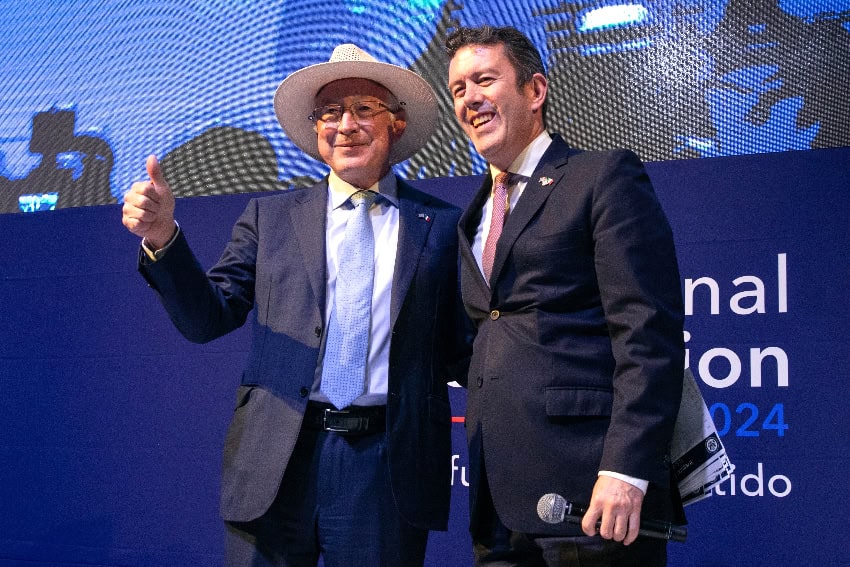
Larry Rubin, president of the American Society of Mexico, made similar remarks last week, and called on the Mexican Congress “to take into consideration the voice of the most important investment in the country, which is United States investment.”
Wayne, a public policy fellow at the Wilson Center and co-chair of its Mexico Institute Advisory Board, told the Journal that Mexico will find it hard to attract nearshoring investment, create jobs and combat poverty if the judicial reform is approved.
“Mexico is going to get a lot of negative attention,” he said.
Another $18 billion in investment ‘at stake’
The Wall Street Journal also reported that the judicial reform proposal places “at stake” another $18 billion in private investment “that Mexico needs to cover rising electricity demand for industrial use.”
The Journal noted that the Supreme Court has “blocked policy initiatives that could have disrupted Mexico’s electricity sector in violation of the United States-Mexico-Canada Agreement” (USMCA), but added that “some investors fear a new, elected court would approve them.”
Supreme Court justices and other judges would be elected from candidates nominated by the president, the Congress and the judiciary.
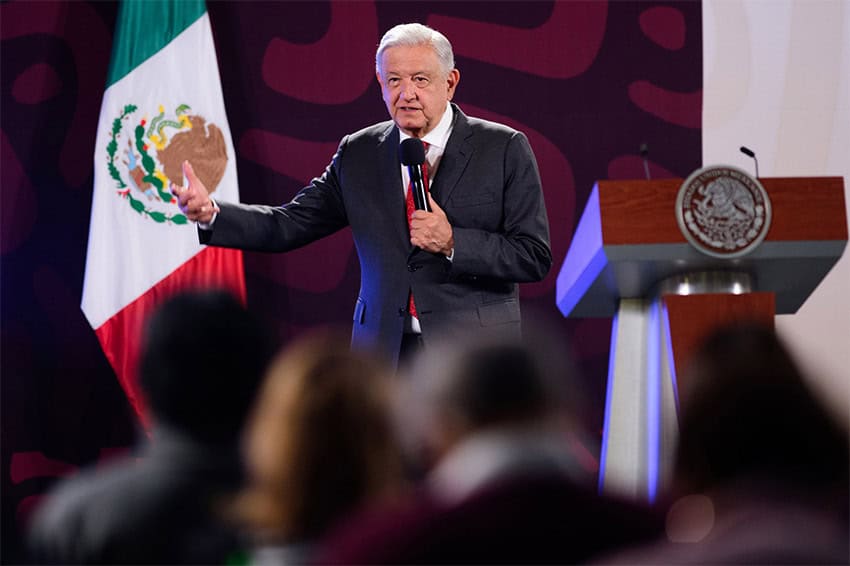
Current President Andrés Manuel López Obrador — the foremost proponent of the judicial reform — and his successor, Claudia Sheinbaum, are both affiliated with Morena, which also controls both houses of Congress. Critics of the reform argue that the president and Morena will therefore be able to stack courts with judges sympathetic to their agenda, and thus eliminate a crucial check on executive and legislative power.
They are also concerned about a separate reform proposal that seeks to disband a number of autonomous government agencies and absorb their functions into the executive branch, potentially removing other checks on executive power.
López Obrador and Sheinbaum reject claims that the independence of the judiciary — and foreign investment inflows — are at risk by the plan to allow citizens to directly elect judges.
The latter asserted last week that “the reform to the judicial power doesn’t affect our trade relationships or private national and foreign investment.”
Other warning bells
The Wall Street Journal reported on a range of other concerns about the judicial reform proposal. It said that:
- Expensive international arbitration over investment rights is “likely to increase as companies seek to avoid Mexican courts.”
- “Corporate lending in Mexico would also be affected because of the uncertainty, according to bankers.”
- The reform risks “undermining talks to review the USMCA in 2026, according to Global Companies in Mexico, a group of top executives from 60 or so companies operating in the country.”
- “The replacement of the judiciary would also disrupt labor tribunals under the USMCA and violate treaty provisions that call for independent magistrates, according to the American Chamber of Commerce of Mexico.”
Supreme Court Chief Justice Norma Piña told the Journal that the reform, if enacted, would violate Mexico’s free trade agreements.
“A state can’t invoke its internal law as an excuse for failing to comply with international obligations,” she said.
Juan Luis González Alcántara, another Supreme Court justice, also spoke to the Journal.
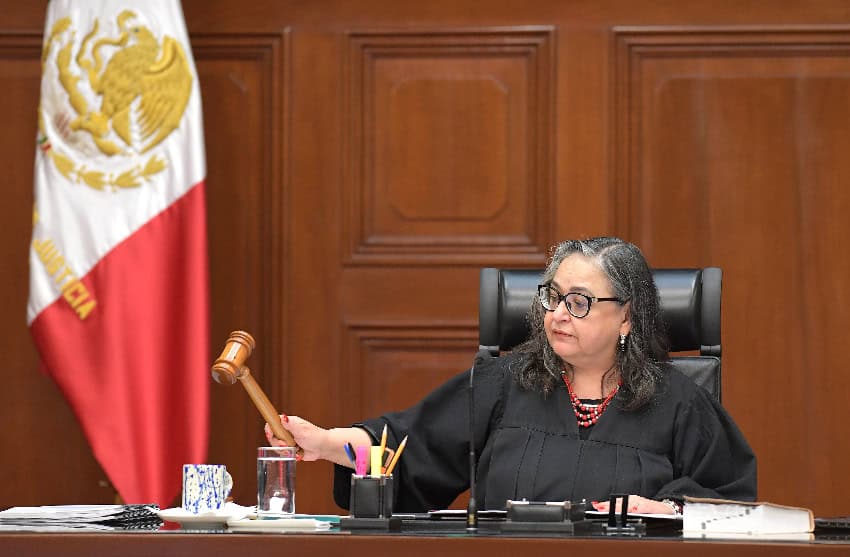
“It’s difficult to imagine a country that attracts foreign investment or encourages domestic investment when the minimum conditions of legal certainty don’t exist,” he said.
Mexico is currently amidst what has been described as a “once-in-a-generation opportunity” to attract foreign investment, but there are a range of factors that make capitalizing on it a challenge, including insecurity, water and electricity concerns, lack of infrastructure and uncertainty about the rule of law.
There are also external factors outside of Mexico’s control that worry foreign companies that already have a presence here or are considering establishing one.
“A victory in the presidential election by Donald Trump, who wants to impose more tariffs on imports, would complicate the trade relationship between the U.S., Mexico and Canada,” the Journal reported.
With reports from The Wall Street Journal
